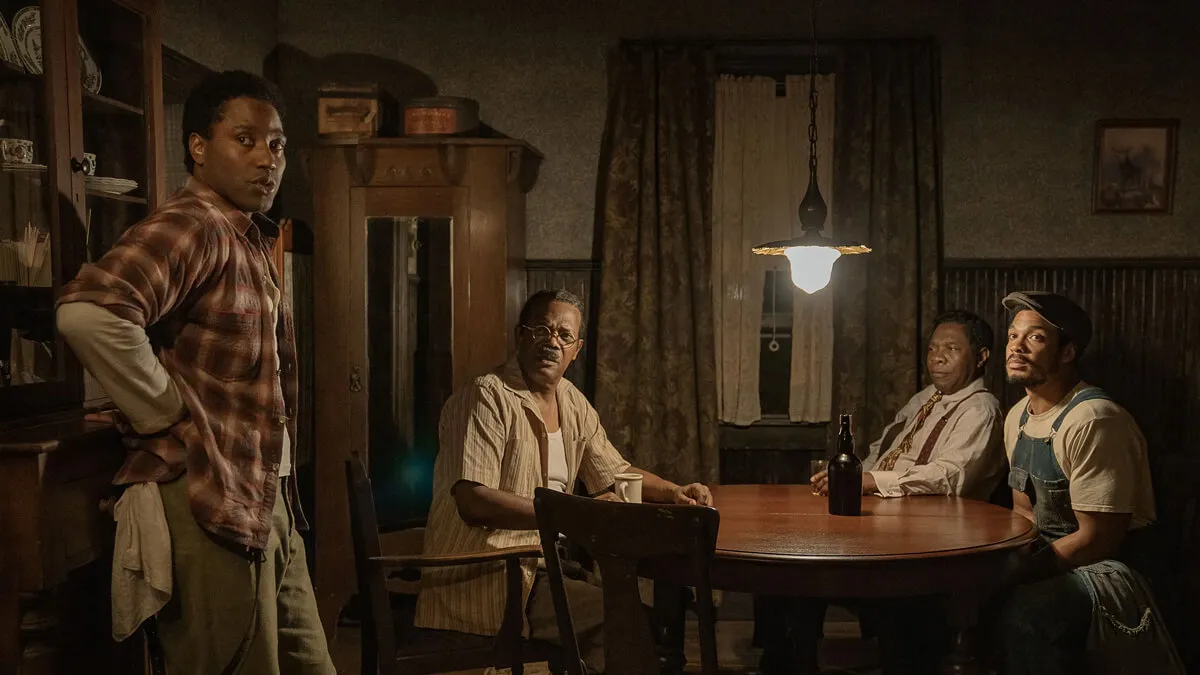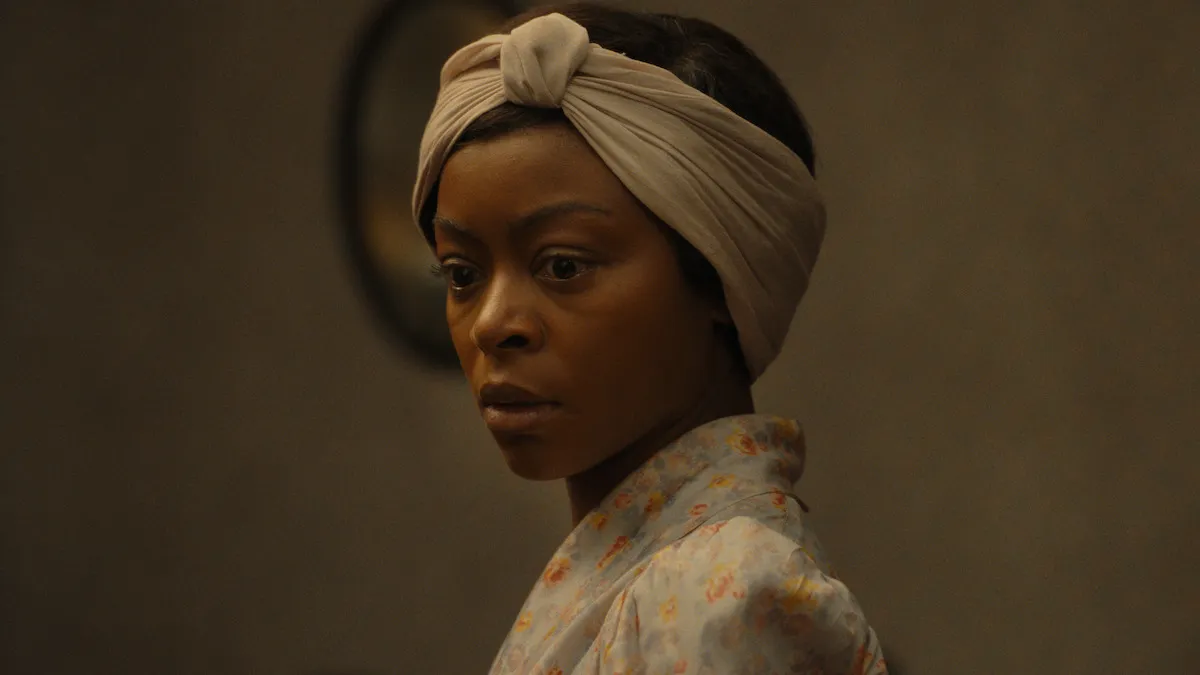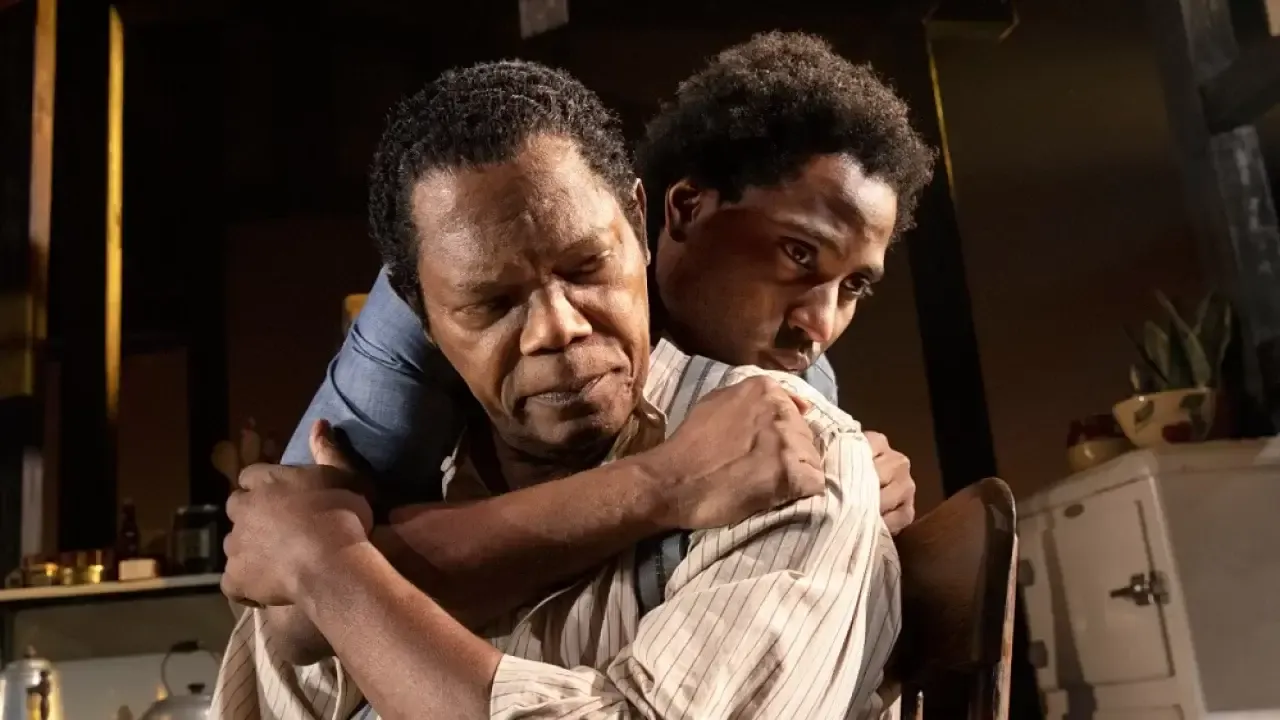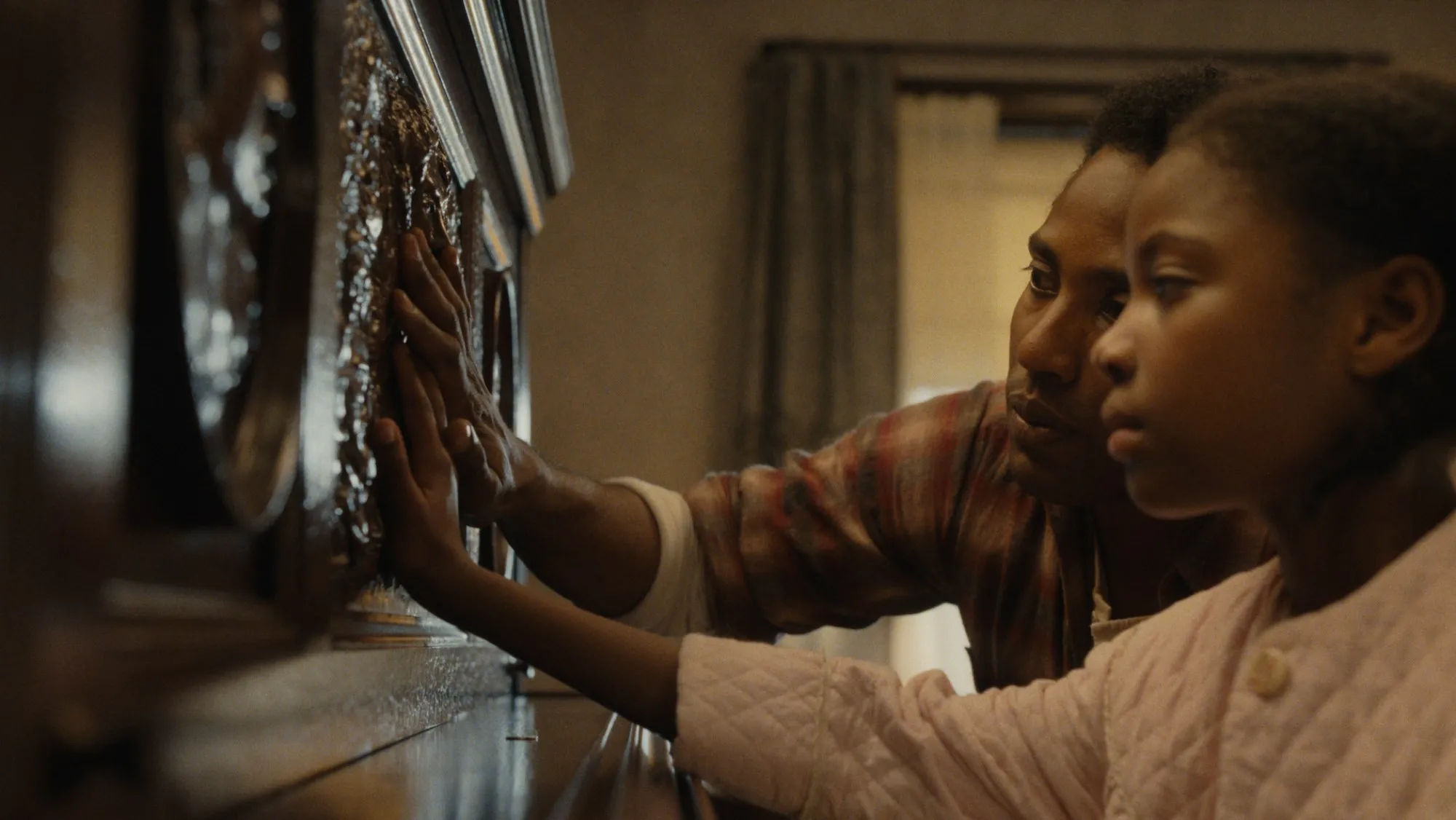Malcolm Washington’s film adaptation of August Wilson’s classic play The Piano Lesson tells the story of the Charles family in 1930s Pittsburgh. At the center of the family drama is Danielle Deadwyler’s powerful performance as Berniece. Her character is tasked with shouldering the weight of the family’s difficult past and fiercely guarding their most prized possession, an ornately carved piano.
The piano holds deep significance as it has been in the Charles family for generations, passed down through their ancestry. Etched into its panels are portraits honoring forebears and marking their triumphs over adversity. For Berniece, the piano is a symbol of heritage and remembrance. But her brother Boy Willie, played compellingly by John David Washington, sees the instrument only as a potential source of financial gain. He wishes to sell the piano to buy land where their family once toiled as slaves.
This clash in perspectives over the piano’s fate forms the crux of the film’s narrative conflicts. As past traumas resurface and family secrets are revealed, Berniece must navigate complicated feelings towards her lineage and disputes with Boy Willie. Deadwyn brings nuance and care to every layer of her character, imbuing the story with emotional richness.
Powerful Play, Captivating Adaptation
August Wilson’s play The Piano Lesson has resonated with audiences since its debut in 1987, winning widespread acclaim for its exploration of black history and family dynamics. Director Malcolm Washington had immense shoes to fill in bringing this rich work to the big screen.
He stayed devoted to capturing the soul of Wilson’s story while letting new elements shine. The supporting drama of Doaker and Boy Willie trying to heal past wounds comes alive, with Samuel L. Jackson and John David Washington displaying nuanced understanding of their characters.
Yet the film also enhances the source material. Flashbacks to Berniece and Boy Willie’s childhood develop their differing views of the piano with emotive subtlety. More prominence is given to the play’s supernatural threads, honoring Wilson’s inclusion of ancestral spirits.
The magic realism dimension comes to the fore expertly through Danielle Deadwyler’s fiercely dedicated performance. Her Berniece acts as a vessel connecting past and present, amplifying the play’s message about upholding one’s cultural roots.
By weaving between theatrical roots and cinematic adaptation, Washington forges a balance that expands key aspects while retaining the work’s essence. From atmospheric cinematography to Desplat’s stirring score, every technical element comes together to transport themes of legacy and racial history profoundly to screen.
The weight of faithfully directing such a revered work could have held the film back. Instead, Washington’s deft touch as both director and co-writer has produced a movie worthy of its source, honoring a legendary playwright through a cinematic work of legacy all its own.
Berniece’s Story Takes Center Stage
Malcolm Washington’s direction ensures Danielle Deadwyler’s Berniece remains the magnetic center of this adaptation. With her at the fore, the film explores the character’s inner life and perspective on family history.
Washington opens up moments simply shown on stage, using flashbacks to shed light on Berniece and Boy Willie’s differing relationships with the piano. This conveys their clashing views vividly.
Cinematographer Michael Gioulakis immerses viewers in the world of the Charles household. His atmospheric shots of the piano’s ornate carvings and the characters’ expressive faces bring their tales to life.
Subtle details like period costumery and the aged interior rooms transport us to 1930s Pittsburgh. We feel the everyday struggles and sense of heritage in the family’s home.
When mystical elements emerge, ghosts appear as wisps in the shadows or reflections in the piano, haunting and haunted. These visual choices amplify profound themes without being overt.
Alexandre Desplat’s stirring score lends the perfect balance of warmth and melancholy to further draw audiences into this moving family drama. His music swells during crucial moments of understanding between the characters.
Together, these aesthetic elements ensure the focus stays on Berniece’s burden and resilience at the story’s heart, illuminating her personal truths for modern viewers through a lens of historical authenticity.
A Force of Nature Named Berniece
Danielle Deadwyler’s searing lead performance brings August Wilson’s complex character Berniece to captivating life at the heart of this adaptation. She sinks fully into the role, conveying the woman’s resilience alongside silent struggles.
From the first moment, Deadwyler commands attention as the devout caretaker of her family home. But hints of private pain emerge—in sorrowful gazes recalling loved ones lost, in defensive posture shielding deep scars.
Her Berniece stalwartly maintains inheritance of the symbolic piano despite Brother Boy Willie’s plans. Yet Deadwyler ensures we feel the weight of that responsibility, the doubt and defiance it breeds within her.
Flashes of childhood shed light on her character’s evolution. Whether singing joyfully as a girl or confronting later hardships, Deadwyler breathes nuance into every phase of Berniece’s life.
Her climactic moment sitting at the piano crackles with intensity. Grief and strength fuse in her eyes, as if ancestral spirits flow through her in that act of reclamation. It’s a tour de force of emotional prowess.
Across boisterous disputes with Boy Willie and gentle scenes comforting her daughter, Deadwyler remains a commanding, captivating lead. She disappears fully into Berniece, bringing the complex woman and her enduring legacy to stunning big-screen life.
Stepping into Iconic Roles
John David Washington brings vital complexity to volatile Boy Willie. Where some could play him as simply brash, Washington finds poignant pain beneath. He subtly conveys the character’s desperation to shed shackles of the past.
Not to be outdone is Samuel L. Jackson, reprising the role he originated on stage decades ago. Time has layered Doaker with wisdom, but Jackson recalls nuances from yesteryear. He grounds each scene in empathic clarity.
As the trustworthy voice of family history, Doaker acts as a moral center amid tense debates. Jackson brings dignity and gravitas to this anchor presence. Their scenes share an effortless synergy, a testament to an actor’s deep understanding of a part.
Supporting these legends, Ray Fisher excels as reliable friend Lymon. His grounded performance gently reinforces core themes. Erykah Badu, moreover, shines in her nimble cameo.
Washington mines every interaction for emotional truth. His ensemble strengthens the production as a reverent tribute to iconic source material. Like seasoned musicians, they find fresh insights within a shared history and collective mastery of August Wilson’s complex characters.
Generations of Struggle and Resilience
August Wilson weaved profound themes into The Piano Lesson, all brought to fore by the film. At the piano’s core lies a dichotomy—for Boy Willie, it’s gain to be had, while Berniece sees family history demanding respect.
Their clash reflects how ancestry survives, whether as living memory cherished or sole possession to leverage. More deeply, it asks what legacies of trauma we inherit and how we write new chapters.
For Berniece, the piano stands as a catalog of those who endured southern plantations. In its ornate carvings live their triumphs over immense suffering. She guards these ancestors’ memories like a sacred text.
When mystical presences emerge, they spring from that painful heritage. Ghosts haunt not to terrorize but to support healing. Guided by Berniece’s strength, their visits empower rediscovering cultural roots.
This dynamic pulls audiences straight into the play’s multi-layered discussions of race, identity, and perseverance across generations. The film breathes cinematic life into that moving analysis while honoring its source material’s profound wisdom.
In these shadows and symbols, a community’s history shines through, ensuring recognition of African American endurance despite relentless challenges to its light.
A Piano Lesson’s Legacy Lives On
With The Piano Lesson, Malcolm Washington faced the immense challenge of adapting one of August Wilson’s beloved works. Looking back, it’s clear he rose above expectations.
By bringing new dimensions to Wilson’s complex characters and themes, Washington honored the play while making it his own. From stirring performances to magical imagery, the film translation resonates because of its deep respect for the source material.
Whether drawing out the piano’s significance or showcasing family drama, Washington understood what made the original storytimeless. He ensured new audiences could appreciate its exploration of history, identity, and the weight of past sacrifices.
While some moments show restraint from straying too far, it’s a small mark against an achievement that overall does right by Wilson’s legacy. Through visionary direction and a powerhouse cast, Washington preserves the soul of the work for new generations.
For anyone with insight into society’s obstacles, then as now, The Piano Lesson film proves a moving tribute. It proves how art can convey shared humanity across all divides, keeping priceless stories alive through new lights.
The Review
The Piano Lesson
Malcolm Washington's adaptation of August Wilson's The Piano Lesson is a stirring tribute that translates the powerful themes and characters to the big screen with empathy and care. Danielle Deadwyler offers a tour de force performance at its heart. Despite some overly faithful moments, the film breathed new life into Wilson's revered work and will surely introduce his masterful drama to countless new viewers.
PROS
- Powerful lead performance by Danielle Deadwyler
- Nuanced supporting roles from Samuel L. Jackson and John David Washington
- Evocative direction that enhances the source material
- Beautiful incorporation of mystical elements
- Skilled adaptation that explores the play's profound themes
CONS
- Occasional moments feel too constrained by stage origins.
- Flashbacks could have been woven in more seamlessly.
- Some supernatural aspects not totally convincing





















































Discussion about this post